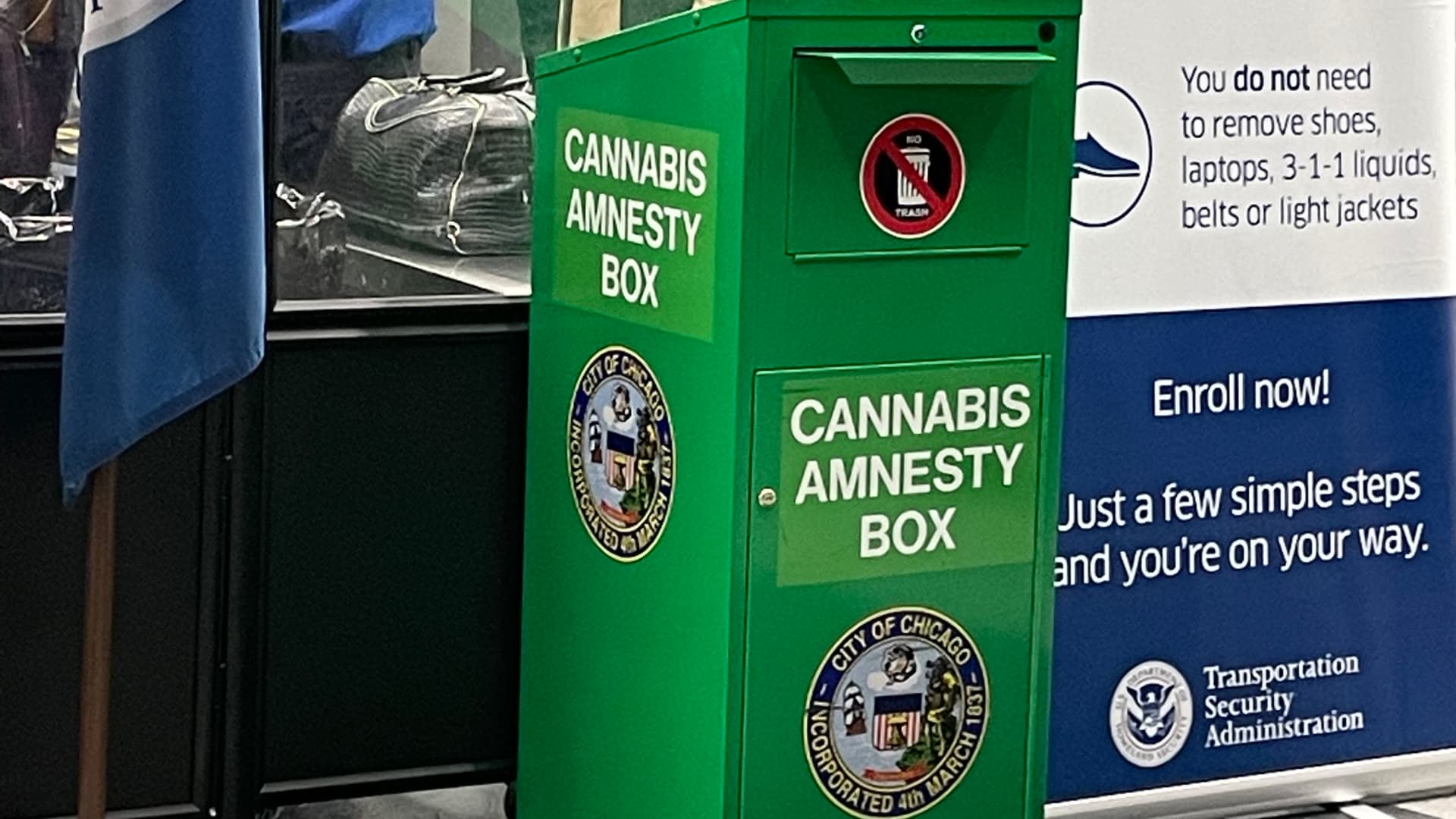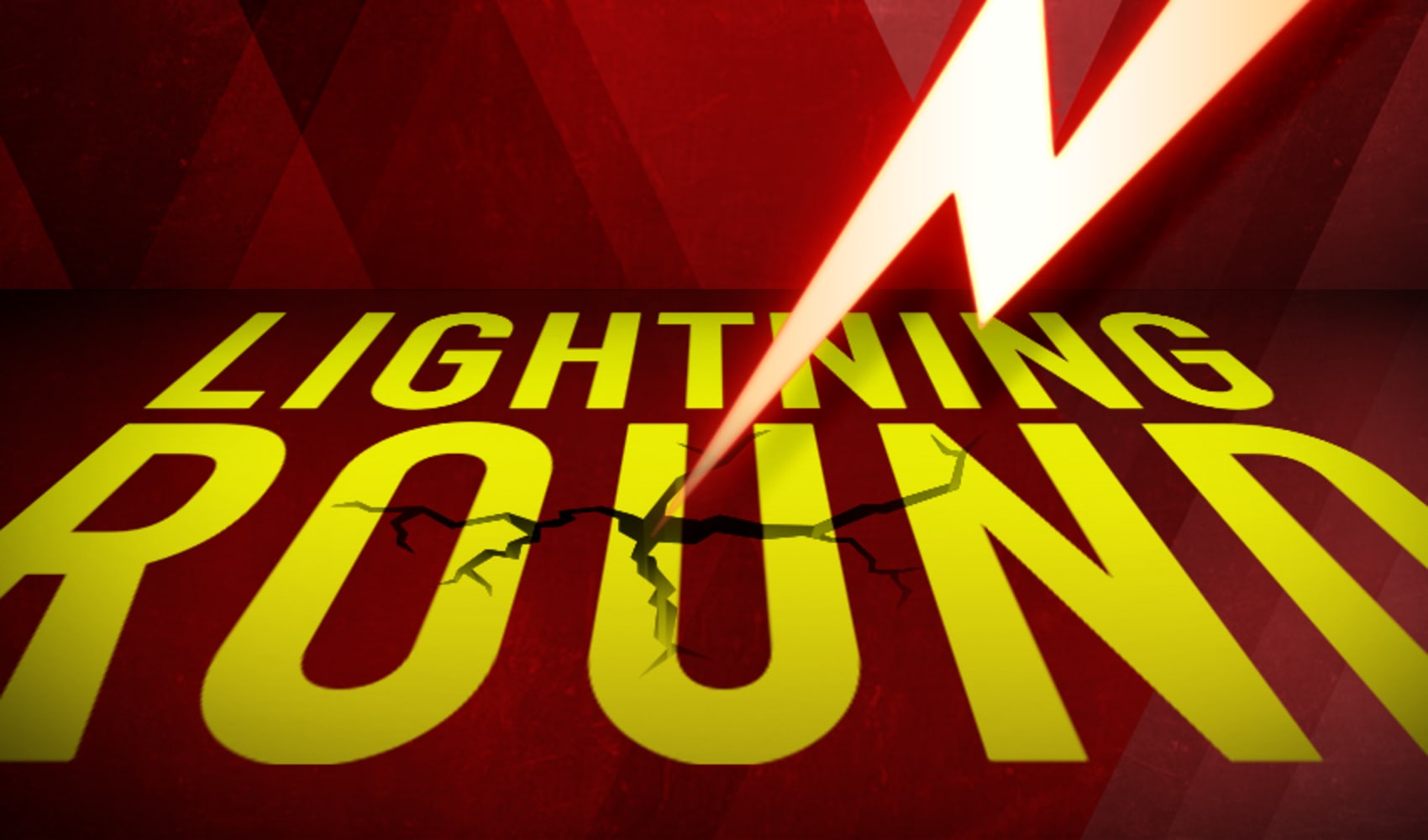
- Marijuana is legal for recreational use in many states, but possession is still illegal under federal law.
- Travelers looking to bring small amounts of marijuana face confusing state and federal laws.
- Some airports in states where weed is legal have placed amnesty boxes so travelers can throw out their pot before boarding.
As weed becomes legal in more states, how and if travelers can bring their stash on board remains up in the air.
Twenty-one states and Washington, D.C., have legalized recreational use for adults 21 years and older, and 37 states and Washington, D.C., have medical marijuana programs. But marijuana is still illegal under federal law.
That leaves travelers hoping to fly with pot on domestic U.S. flights to face an ever-changing patchwork of conflicting state and federal laws.
Traveling between states where marijuana is legal in both the origin and destination may sound straight-forward, but with overlapping jurisdictions and hard-to-enforce guidelines, it gets complicated.
Can I fly with marijuana?
Get Tri-state area news delivered to your inbox.> Sign up for NBC New York's News Headlines newsletter.
Technically, no. Under federal law, the possession and sale of marijuana is illegal.
Money Report
Despite President Joe Biden's recent pardons for anyone convicted of a federal crime for simple possession and his directive to review how marijuana is scheduled under federal law, marijuana is still classified as a Schedule I substance.
According to the Drug Enforcement Administration, Schedule I substances have no accepted medical use and have a high potential for abuse. That also includes drugs like heroin and LSD.
And even though airports are locally owned and operated, air travel still falls under federal law.
"Most people are under the impression that it is acceptable to travel with cannabis since it is legal in California, however, they are not aware of the travel restrictions," said Karla Rodriguez, police captain at Los Angeles World Airports, which operates Los Angeles International Airport. "Additionally, passengers need to be aware of the legality of cannabis in other states or countries."
She said most arrests involve "passengers who take an amount which is more than what is considered personal use."
What about medical marijuana?
Well, that changes things.
The Transportation Security Administration said that medical marijuana products that "contain no more than 0.3 percent THC on a dry weight basis or that are approved by FDA," are permitted in both carry-on bags and checked bags.
TSA agents wouldn't likely ask to see a medical marijuana card unless the traveler was carrying a larger amount or was traveling through a jurisdiction where weed was entirely illegal, an agency spokesperson said.
OK sure, but will TSA search me?
TSA said it is not actively searching for marijuana but rather focuses screening procedures on "potential threats to aviation and passengers" like weapons and explosives.
"The TSA is looking for anything illegal, but they are not law enforcement," said William Kroger, a defense attorney who's represented clients arrested for marijuana at airports.
Kroger says if agents find marijuana in a passenger's luggage, the TSA doesn't have the power to arrest travelers. It can, however, call local police. Some local police officials told CNBC they would follow local laws in that situation.
The DEA could be alerted by local law enforcement if the quantity of marijuana exceeds personal use or officers have reason to be suspicious that the traveler intends to sell marijuana.
What if the TSA finds marijuana on me?
While the TSA isn't actively searching for marijuana or other federally illicit drugs, if it does find an amount that exceeds local limits, which vary widely for both weed and THC-infused edibles, it will alert local officials.
Some airports offer amnesty boxes for travelers to discard their pot before traveling. There are 12 at Chicago's O'Hare International Airport and one at Midway International Airport, according to the Chicago Department of Aviation.
Cannabis products are legal for personal use in Illinois as of Jan. 1, 2020, and residents can possess up to 30 grams, or about an ounce, of cannabis flower.

"When the amnesty boxes are cleared and there are items in the box, officers will create a report, inventory the cannabis or cannabis products and then they will be disposed of similar to how narcotics are disposed of," a spokesperson for the Chicago Police Department said in a statement.
In New York and New Jersey, airport police enforce those states' laws, said a spokesperson for the Port Authority of New York and New Jersey, which oversees the area's largest airports. New York and New Jersey each legalized marijuana for recreational use in 2021.
Travelers at Denver International Airport can return their marijuana to their vehicle or pass it to someone not traveling if it's no more than 2 ounces, according to the Denver Police Department. Colorado legalized recreational pot back in 2014.
They can also surrender it to police officers where it will be "sent to get destroyed and not returned to them," said Jay Casillas at the Denver Police Department. "Any amounts greater than 2 ounces will warrant an investigation where they may be subject to arrest and may face charges."
However, the severity of the penalty is largely up to the jurisdiction, said Kroger, the defense attorney. In states with harsher marijuana laws, "you could be facing serious time in jail or prison," he said.
Can I fly high?
Airlines' contracts of carriage, the document that lists policies for everything from overbooked flights to lost baggage, state that intoxicated travelers can't fly.
In a practice that's similar to how a passenger trying to board barefoot will be denied boarding, airlines can refuse to allow a customer to get on the plane if, according to Delta's rules, for example, "the passenger's conduct is disorderly, abusive or violent, or the passenger appears to be intoxicated or under the influence of drugs."
What about traveling internationally?
Again, no. Marijuana rules vary across the world, but it is still banned outright in many countries, and while many of the high-profile prison sentences for carrying weed through foreign countries are for large quantities, even smaller amounts could carry hefty fines or more severe punishments.






